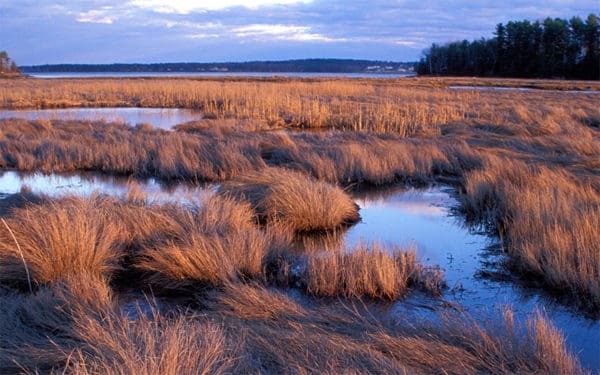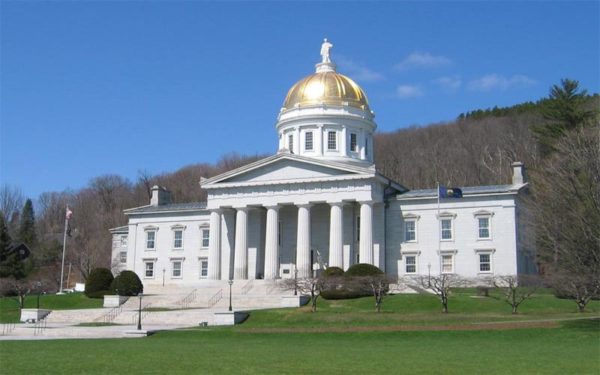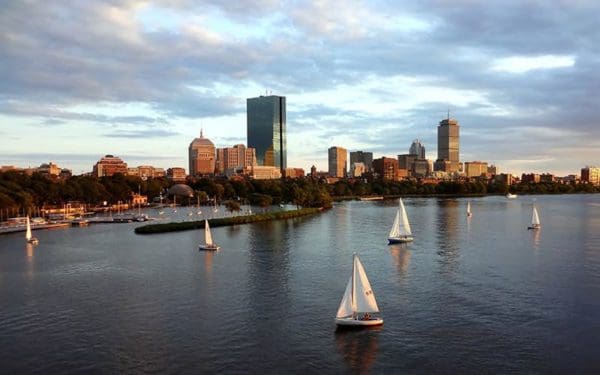Taking on Nitrogen Pollution
Nitrogen pollution is one of the biggest threats to the Great Bay estuary. A new, comprehensive “Nitrogen General Permit” could help cut that pollution in half.

Nitrogen pollution is one of the biggest threats to the Great Bay estuary. A new, comprehensive “Nitrogen General Permit” could help cut that pollution in half.

Phelps Turner of the Conservation Law Foundation says one area of concern is the recommendation that Maine adopt federal guidelines for allowable levels of PFAS in drinking water.
“By erasing protections for the majority of our Nation’s wetlands and more than 18% of streams, this rule green-lights the dumping of pesticides and toxic chemicals into our waters,” said Heather Govern, Director of CLF’s Clean Air and Water program. “Large corporate interests bought and paid for this rollback, which will harm our communities and public health for decades to come.”

Conservation Law Foundation has followed through on its threat to sue Wynn Resorts after observing excessive idling among the shuttle buses that serve Wynn’s new Encore Boston Harbor casino in Everett. CLF sued Wynn and three shuttle bus operators in Boston federal court on Wednesday.
“Idling vehicles choke neighborhoods with harmful air pollution,” said Heather Govern, Director of CLF’s Clean Air and Water program. “Anti-idling laws are specifically meant to curb this dangerous exhaust. When companies ignore these laws, it threatens our health and worsens the climate crisis.”

“In today’s proposal, President Trump has arrogated to himself the power to repeal the nation’s foundational environmental protection law by fiat, in defiance of the language and history of the statute,” said CLF President Brad Campbell. “This unlawful gift to the fossil fuel industry excludes climate impacts from consideration and redefines the scope of the law to a fraction of those reviewed for generations. This lawless action at the behest of the oil and gas industry will not survive judicial or public scrutiny, and continues the president’s war on science, the environment, rationality, and fact-based decision-making.”

The Maine PFAS Task Force recently released a draft of its recommendations for how to protect residents from these dangerous chemicals, but they fall well short of the bold action that is needed. But there are still opportunities for legislators and regulators to make a difference.

With the Vermont General Assembly reconvening, CLF is working with lawmakers to advance solutions that protect our natural resources, build healthy communities, and sustain a vibrant economy on behalf of all Vermonters. This session, we’re focusing on cutting carbon, limiting plastic pollution, protecting the state from toxic “forever chemicals,” defending water quality, and more.

“Stormwater pollution continues to wreak havoc on Massachusetts waters,” said Heather Govern, Director of CLF’s Clean Air and Water program. “Cities and towns are responsible for reducing this pollution and many have shirked these duties for years. This new permit forces them to prioritize protecting our waters, but CLF is prepared to take legal action if these flagrant violations continue.”

If you live anywhere near a school, you have likely seen buses idling while waiting for students to board or exit. Unfortunately, this routine practice can translate to serious health problems for kids and adults. Building on prior cases against tailpipe polluters, we recently announced a lawsuit against DATTCO, Inc. to force their buses to stop idling their engines and polluting neighborhoods with toxic diesel exhaust.
